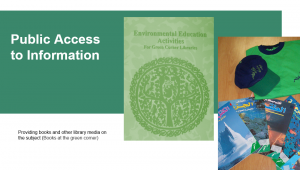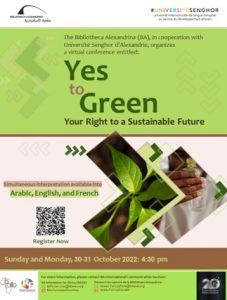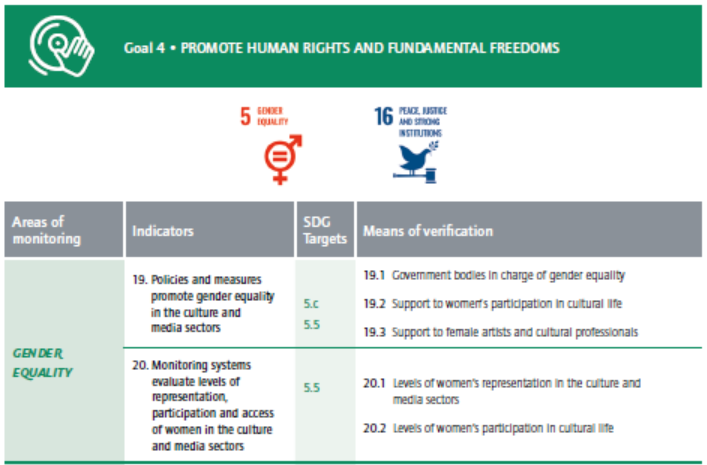In the first part of this two-part series looking at the UN General Assembly’s Resolution on Culture and Sustainable Development, passed on 19 December, we looked at key overall takeaways from the text that could help libraries and others in our efforts to get culture recognised fully recognised and integrated into planning.
The second part looks back to the previous such Resolution, from 2021, in order to get a clearer idea of what has changed between the two. While many elements are simply copy and pasted from one text to the next, each revision does offer an opportunity to reflect new thinking and approaches. Through this, we can get an idea of how the discourse on culture is evolving over time.
Of course, many of the changes are primarily simply about updating references, for example adding in Resolutions or events that have taken place, or started to be planned, in the intervening time. This covers, for example, the September 2022 MONDIACULT conference, the International Year of Creative Industries for Sustainable Development, and the upcoming World Forum on Cultural Policies.
However, there are some substantive changes, highlighted below.
- Culture is not just as an enabler, but as a driver of sustainable development: perhaps the most meaningful change is an upgrade in the way that the relationship between culture and sustainable development is described. Rather than just being an ‘enabler’, culture is seen as a (more active) driver. Social inclusion, growth, addressing different dimensions of poverty, education, health and equity are all name-checked. These represent much more specific references than before, indicating perhaps a greater readiness to think through the place of culture in general in achieving change.
- A stronger focus on (equitable) access to culture: the Resolution includes new texts in a few places underlining the need to ensure fair access to culture. This is new, with the previous edition being more about cultural production, but this is strongly in line with the work on cultural rights promoted by the UN Special Rapporteur on the subject, Alexandra Xanthaki. With libraries’ focus on access, this is certainly good news.
- More consideration of artists’ rights: in parallel, the idea of artists’ rights is given more space, including references to artistic freedom, as well as to social and economic rights. This is more detail than before, and perhaps reflects concern about threats to creators’ ability to express themselves. Similarly, there are a number of new references to the cultural sector’s role in generating quality jobs, and ensuring equitable access to these.
- Culture should be part of a Voluntary National Reviews: a very helpful new paragraph talks explicitly about the value of incorporating culture into Voluntary National Reviews of implementation of the Sustainable Development Goals. Given the work of the Culture2030Goal campaign on the subject, including our checklist for countries undertaking VNRs, this is certainly a welcome step.
- Greater consideration of the role of digital (in both directions): the Resolution includes more references to digital than before. While the previous edition just talked in general terms of making the most of the digital environment, this one stresses the need to consider how digital information flows work, and ensure that markets work for creators and consumers.
- The role of the local recognised: Another area of strengthening are the new references to the local level. The report highlights SDG11 (sustainable cities and communities) as an area where it will pay off to include culture, but also promotes learning at the local and regional levels. This comes on top of a number of existing references to drawing on local knowledge.
- New highlighting of multilingualism and indigenous communities: the new resolution includes additional references to the needs of minority language communities, as well as of indigenous communities, confirming the importance of these in the context of cultural and development policies if they are to be effective and inclusive.
- Additional references to UNESCO tools and materials: while less substantive, there are now more references to UNESCO documents, both in terms of the indicator framework or culture, and key texts. In particular, this confirms the core role and responsibility of UNESCO in this space. Interesting, the Resolution also tackles the question of restitution with reference to UNESCO instruments on trafficking.
- Stronger recognition of the role of arts and culture education (including TVET): perhaps with a look ahead to the UNESCO conference and arts education in February, the resolution gives space to underlining how culture and arts education can support not only wellbeing, but also creative and innovative thinking among children and young people.
- Recognition the risks posed by climate change: finally, while references to climate change are not new in these resolutions, what is is the clear indication that governments should pay attention to the threats posed by climate change to heritage. This is a helpful step as we work to get libraries incorporated into wider disaster risk management plans.
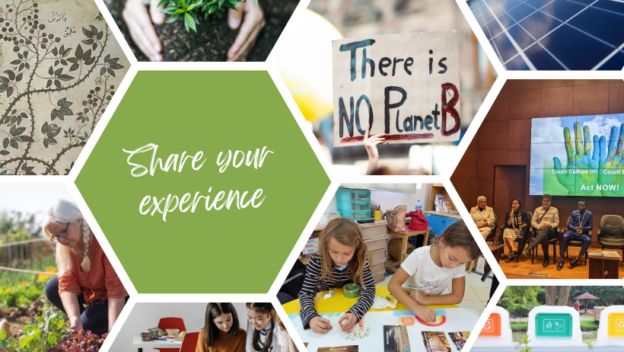
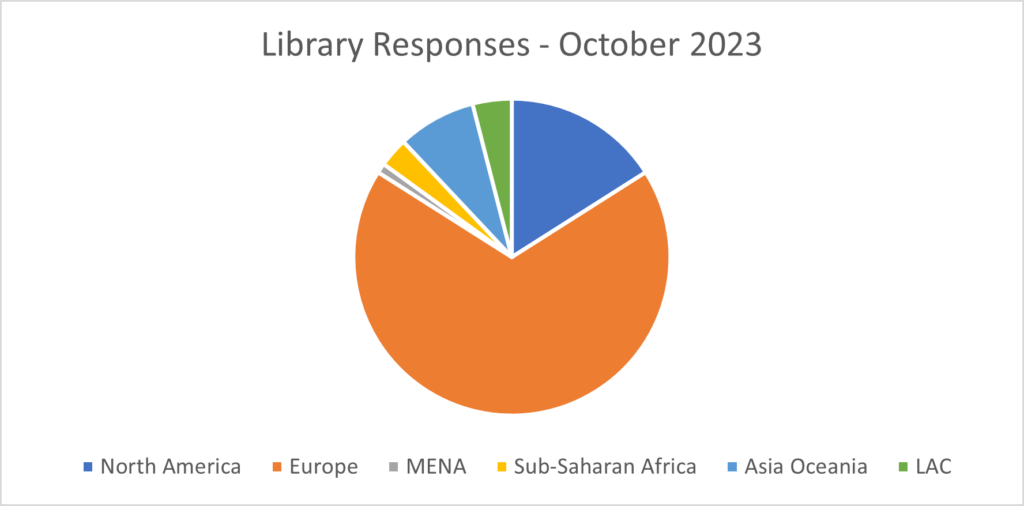
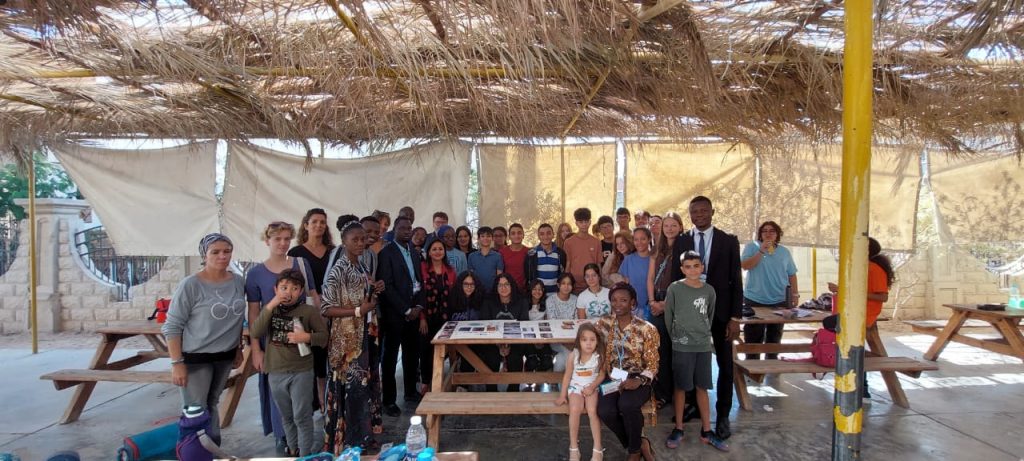
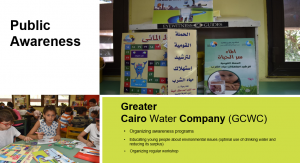
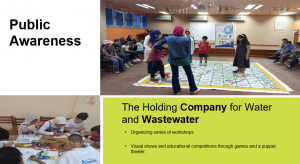
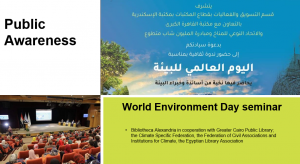
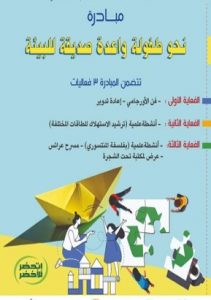 Misr Public Library System (MPL) in cooperation with the Faculty of Early Childhood Education, Cairo University, which is concerned with educating ordinary children and people with special needs, launched an initiative entitled “Towards a promising environmentally friendly childhood.” The initiative includes several activities and events:
Misr Public Library System (MPL) in cooperation with the Faculty of Early Childhood Education, Cairo University, which is concerned with educating ordinary children and people with special needs, launched an initiative entitled “Towards a promising environmentally friendly childhood.” The initiative includes several activities and events: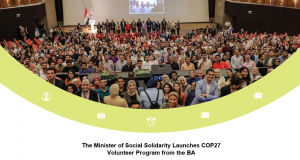
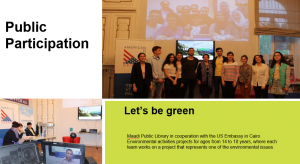
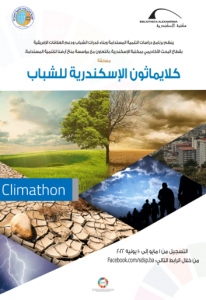 The BA Sustainable Development Studies, Youth Capacity Building, and African Relations Support Program organized “Alexandria Climathon for Youth” competition. “Climathon” is an international competition held in several countries around the world through EIT Climate-KIC, which aims at raising the awareness of urban residents about climate changes. The competition is an opportunity for young people to participate in developing ideas that address local climate challenges. The activities of “Climathon” are held internationally on the same date in hundreds of cities, and are supported by local organizers.
The BA Sustainable Development Studies, Youth Capacity Building, and African Relations Support Program organized “Alexandria Climathon for Youth” competition. “Climathon” is an international competition held in several countries around the world through EIT Climate-KIC, which aims at raising the awareness of urban residents about climate changes. The competition is an opportunity for young people to participate in developing ideas that address local climate challenges. The activities of “Climathon” are held internationally on the same date in hundreds of cities, and are supported by local organizers.